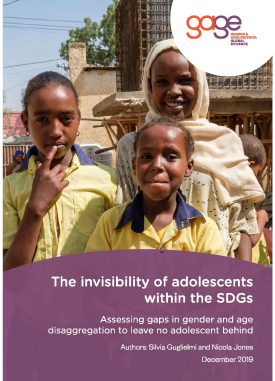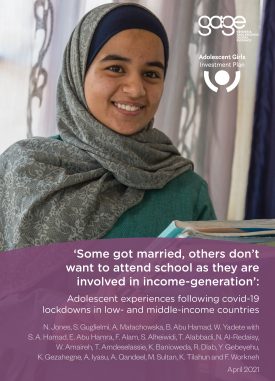The covid-19 pandemic has dramatically disrupted the implementation of the 2030 Agenda, potentially undermining decades of development gains. As the effects of pandemic continue to unfold around the globe, the multidimensional impacts the crisis has had on adolescent and youth well-being grow steadily clearer.
In this brief, we use the SDG Agenda as a lens through which to view the patterning of the impacts the pandemic has had on adolescent well-being, gauging the efficacy of the SDG framework to make visible specific challenges faced by adolescents. In conjunction, we assess the extent to which SDG data highlights pre-existing vulnerabilities associated with age and sex. While the SDGs provide the framework for this discussion, we complement the discussion with data from the Gender and Adolescence: Global Evidence (GAGE) longitudinal study collected before and after the onset of the pandemic and highlight areas where sex- and age-sensitive data is crucial to understanding adolescent well-being in the covid-19 context.
Suggested citation
Neumeister, E., Guglielmi, S. and Jones, N. (2021) ‘Adolescent well-being in a time of crisis: assessing SDG progress during covid-19 and priorities for a resilient recovery for adolescents and youth.’ Policy brief. London: Gender and Adolescence: Global Evidence. (https://www.gage.odi.org/publication/adolescent-well-being-in-a-time-of-crisis-assessing-sdg-progress-during-covid-19-and-priorities-for-a-resilient-recovery-for-adolescents-and-youth/)


